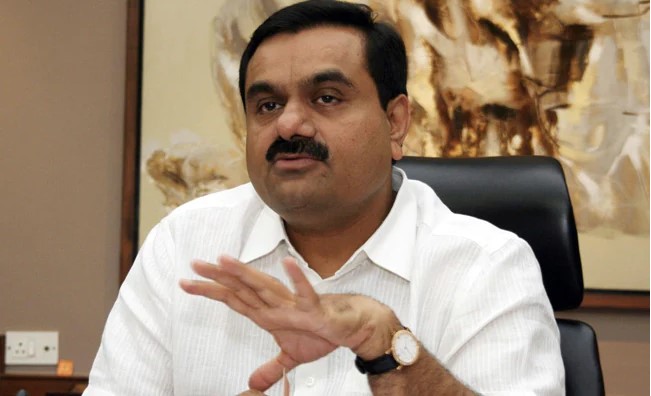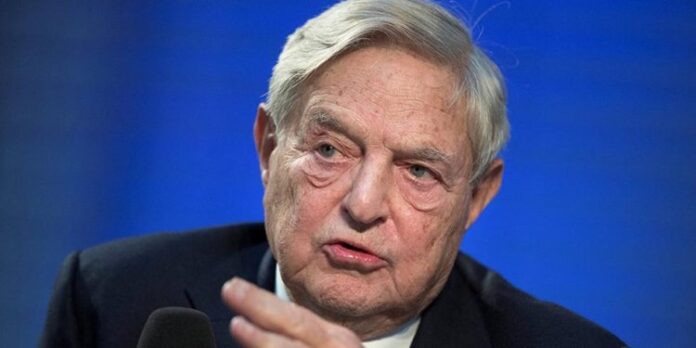by Probir Pramanik
Corruption charges against Indian tycoon Gautam Adani and BJP’s charge against the Gandhi about teaming up with George Soros to destabilize India threaten Indo-US relations
Washington’s discomfort with India is growing as it is being dragged into two major controversies rocking the South Asian country today.
The first is the Bharatiya Janata Party – Congress slugfest over a US court’s indictment of Indian tycoon Gautam Adani. The second is the BJP’s narrative linking Congress leader Sonia Gandhi to US billionaire-philanthropist George Soros in an alleged plot to destabilize India.
Last month’s indictment of Adani, who is close to the ruling Narendra Modi-led BJP government, has exacerbated the already heightened cynicism that a majority of Indians feel towards the US government’s intentions.
US prosecutors had charged Gautam Adani, 62, his nephew Sagar and other defendants for paying over US$ 250 million in bribes between 2020 and 2024 to Indian government officials to win solar energy contracts on terms that could potentially bring in more than US$ 2 billion in profit.
Following that, the Congress demanded a thorough investigation into the charges and accused the government of shielding Adani. The Adani Group has dismissed the charges as “baseless”.
The US indictment of Adani has severely affected his businesses–which are a critical part of India’s economic landscape. Any legal action against him is seen not just as targeting an individual, but as having broader economic and geopolitical consequences for India.
This has led to suspicions about the true motives behind such actions even outside the BJP’s narrative that actions against Adani are tantamount to actions against the Indian national interest itself. No matter who is US President—Joe Biden or President-elect Donald Trump—the US will never be a true friend of India, say Indian geopolitical analysts.

Gautam Adani
A majority of Indians believe that the US’ strategic interests are at play behind the scene in these too instances of interference.
The BJP’s narrative linking to Hungarian-born George Soros taps into a broader conspiracy theory that sees Soros as meddling in global politics to serve Western interests. By associating Sonia Gandhi with Soros, the BJP aims to portray the opposition as being influenced by foreign powers, further fuelling nationalist sentiments and distrust towards the West.
These events are part of a larger pattern where the US is often viewed with suspicion in India.
The relationship between the US and India is complex and multifaceted, influenced by a range of political, economic, and strategic factors. While the US and India have developed a strong partnership over the years, there are several reasons why some believe that the US may never be a “true friend” of India, regardless of who is in the White House.
The perception that US geopolitical considerations, particularly in keeping China at an arms-length in the South Asian region, outweigh its friendship with India is shared by most Indians. Many feel that the US engagement with India is primarily driven by this strategic need to contain China rather than a genuine desire for a balanced and mutual partnership.
Historical Context
US-India relationship has evolved significantly since the end of the Cold War. During the Cold War, India had a policy of non-alignment, which often put it at odds with both the US. However, the end of the Cold War and India’s economic liberalization in the early 1990s opened new avenues for cooperation between India and the US.
US and India have since developed strong ties in areas such as defence, trade, and technology. Despite these advancements, there are underlying geopolitical considerations that complicate the relationship.
The US has historically viewed India through the lens of its broader strategic interests in Asia, particularly in relation to China and Pakistan. While it sees India as a key partner in countering China’s influence in the Indo-Pacific region, it also keeps a relationship with Pakistan, which has been a longstanding ally in the fight against communism and terrorism. This dual approach has created tensions in the US-India relationship.
The leadership styles and policies of US Presidents have significantly impacted the relationship with India. Under President Donald Trump, the US-India relationship saw notable developments, especially in defence and trade. Trump’s administration emphasized the importance of the Indo-Pacific region and looked to strengthen ties with India as part of its strategy to counter China’s rise. The personal rapport between Trump and Indian Prime Minister Narendra Modi also played a role in fostering closer ties.
However, Trump’s approach to foreign policy was often transactional, and his administration’s focus on “America First” sometimes led to tensions with India on trade issues. For instance, the US imposed tariffs on Indian steel and aluminium, and India responded with retaliatory tariffs on US goods. These trade disputes highlighted the challenges of balancing strategic cooperation with economic interests.
Under President Biden, the US-India relationship has continued to evolve, with a focus on shared democratic values and cooperation on global challenges such as climate change and public health. Biden has emphasized the importance of multilateralism and alliances, and his administration has sought to strengthen the Quad, a strategic partnership between the US, India, Japan, and Australia.
However, Biden’s approach to China is more nuanced than Trump’s. The latter’s approach could affect the US-India relationship. While Biden looks to counter China’s influence, he also aims to engage with China on issues like climate change and global health.
The formal indictment of Indian tycoon Gautam Adani by US authorities has added another layer of complexity to the US-India relationship. This controversy has significant implications for the US-India relationship. On the one hand, it underscores the importance of transparency and accountability in business dealings, which are key principles for both countries. On the other hand, it highlights the potential for political and economic tensions when prominent figures close to the Indian government are implicated in legal issues in the US.
The Adani case has also fuelled criticism from opposition parties in India, who argue that the Modi government is too closely aligned with controversial business figures.
The BJP claims that Sonia Gandhi, as co-president of the Forum of Democratic Leaders in Asia Pacific (FDL-AP), is connected to an organization funded by the George Soros Foundation, which has supported the idea of Kashmir being an independent country.
These allegations have sparked a political firestorm in India, with the BJP accusing the Congress party of colluding with foreign entities to undermine India’s sovereignty, and the Congress party dismissing these claims as baseless and politically motivated.
The controversy has also drawn attention to the broader issue of foreign influence in Indian politics and the role of international organizations in shaping domestic affairs.
Many Indians perceive US policies as being self-serving, designed to advance American geopolitical interests rather than genuinely fostering mutual benefits. The double standard often seen in US foreign policy, where strategic interests override democratic and human rights principals, further contributes to this mistrust. A majority of Indians blame the US “deep state”.
Probir Pramanik is a senior freelance Indian journalist
END



 Logging you in...
Logging you in... Loading IntenseDebate Comments...
Loading IntenseDebate Comments...

